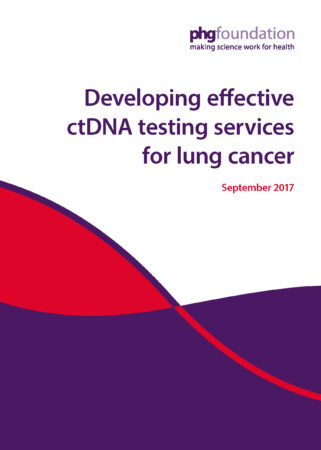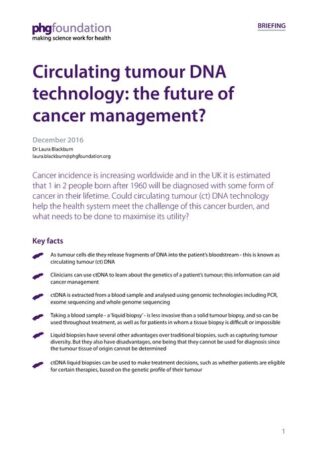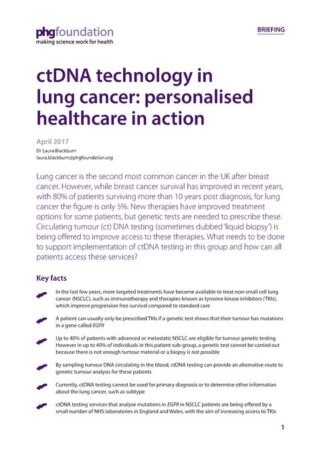Cancer incidence is increasing worldwide and in the UK it is estimated that 1 in 2 people born after 1960 will be diagnosed with some form of cancer in their lifetime. New tests that analyse circulating tumour DNA (ctDNA) in patients with cancer have the potential to transform the management of the disease.
What is ctDNA?
Cells can release fragments of their DNA into bodily fluids such as blood and urine, known as cell-free DNA. Circulating tumour DNA (ctDNA) is cell free DNA that is specifically from tumour cells. Analysing ctDNA identifies if there are any genetic changes driving the growth of the cancer. Measuring the amount of ctDNA present can also provide information on the status of a patient’s cancer during or after treatment.
As ctDNA is found in the blood, this information can be gathered in a relatively non-invasive manner, for example through a standard blood draw procedure.
Listen to our podcast episode where Ofori Canacoo speaks to Dr Joanna Janus about the prospects of using ctDNA for cancer detection.
How could ctDNA tests be used in cancer management?
ctDNA is showing great promise as a biomarker to enable precision medicine, by allowing patients to receive treatments most suited to their individual cancer type and status.
To understand more about ctDNA testing technologies and how they could improve cancer management, read Circulating tumour DNA: the future of cancer management
Use of ctDNA testing in non-small cell lung cancer
Currently ctDNA testing is being used in a subset of lung cancer patients with non-small cell lung cancer (NSCLC), as a liquid biopsy to enable more eligible patients to access specific targeted therapies. Our report Developing effective ctDNA testing services for lung cancer assessed the opportunities and challenges encountered during the broader implementation of this test.
Broadening use of ctDNA testing
We want to make sure that the healthcare system learns from areas where ctDNA testing is already being used, to ensure it is implemented effectively and efficiently in the future, in order to bring the greatest benefits to patients.
We are continuing to investigate ctDNA testing technologies, the cancers in which they could have an impact, and the most pressing issues that are affecting implementation of ctDNA testing within the health system



